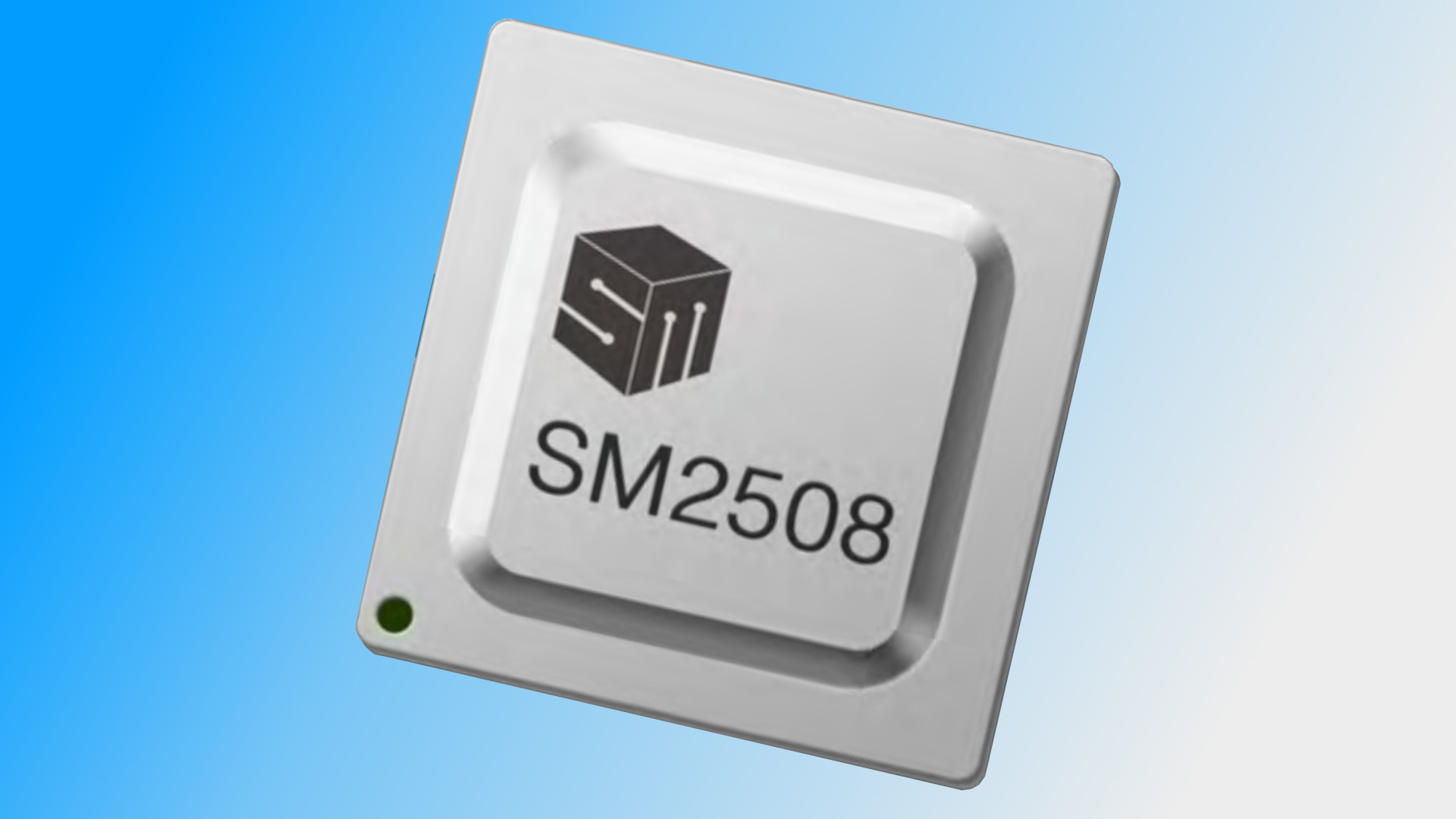
SiliconMotion's new controller is finally ready to roll out to SSD makers.
Good news everyone, the only PCIe 5.0 SSD controller that currently makes any damned sense is starting to ship out to drive manufacturers. Fingers crossed that means we ought to see some Gen5 drives worth a damn before the end of the year.
The SiliconMotion SM2508 memory controller (pdf warning) has been delayed a couple of times, reportedly in order to switch to a more advanced 6nm process at TSMC. We initially expected it to come around earlier this year, but now it is finally being sent out to manufacturers for them to create their own SSDs built around this new controller.
But what is it about this new wee bit of silicon that might make PCIe 5 SSDs relevant? In short, it’s the mix of straight-line storage performance and efficiency. Half of that equation has already been dealt with by the Phison E26 controller—the one used for pretty much all Gen5 SSDs on the market today—but oh boy, does it run hot. And not just a little bit hot.
This is the reason PCIe 5 drives have variously come with active cooling, or else an admission that you’re going to need to provide some serious chip-chilling yourself if you’re hoping to get the most out of the shiny new, and expensive SSD. It’s also the reason that we actively do not recommend PCIe 5 SSDs.
Sure, they have great sequential read and write speeds, with 12,000 – 14,000 MB/s not being beyond the realms of possibility. But what does that actually mean? Not a huge amount when you only have one Gen5 slot in your board, meaning you’ll only see those transfer speeds moving big files around your one SSD. Transferring in and out of that drive will always be limited by either the slowest drive or the slowest interface.
And the random 4k read/write speeds have barely moved on from the PCIe 4 SSDs that have become ubiquitous. That means you’re not going to suddenly notice you’re getting a more zippy Windows experience as your Gen5 boot drive isn’t dealing with the myriad of tiny read/write operations that make up its day-to-day OS workloads.
None of that performance stuff is going to change with the advent of the SiliconMotion SM2508 controller—you’re still going to be limited in terms of transferring in and out of your speedy SSD, and random 4k performance is still the same, but it’s significantly more efficient in operation.
Partly that’s thanks to the 6nm process allowing it to run at around 7W compared with more than 11W with the competition. That all means you should be able to do without a bulky active cooling solution. You may well still need a heatsink, but any time you can do without a tiny whiny spinning fan is a win in my book.
Apparently, it will deliver SSDs that are essentially the same in terms of power and thermal characteristics compared with the current PCIe 4.0 SSDs, and yet is still bringing the straight-line speeds of rival PCIe 5 controllers. SiliconMotion is claiming that in some states it will even use less power than a Gen4 drive.
Interestingly, it’s also sporting a quad-core ARM Cortex R8 processor, which can use standard memory instead of flash memory to hit peak speeds for super low-latency workloads. That is apparently something rival controllers aren’t able to do, and it will be interesting to see if that means anything in terms of bumping those 4k numbers.
(Image credit: Future)
Best SSD for gaming: The best speedy storage today.
Best NVMe SSD: Compact M.2 drives.
Best external hard drives: Huge capacities for less.
Best external SSDs: Plug-in storage upgrades.
There’s no word on when drives based on this controller will be available, nor who will be the first to use the new silicon, but it could make a big difference in the proliferation of Gen5 SSDs. Our Jacob spoke to the VP and GM of Micron’s Consumer and Components group, Dinesh Bahal, at Computex this year, who told him that even so long after launch “the percentage of Gen5 shipping to the percentage of Gen4 is very small.”
But he expects the final hurdle to start shifting out of the way soon, too: pricing.
“Watch this space over the next nine months or so, ” says Bahal. “And you’ll see some interesting Gen5 announcements that should help people move from Gen4 to Gen5.
“There will definitely be a price difference, but it won’t be as substantial as it is.”
Phison is also due to be releasing its E31T controller, first shown off at CES, at some point this year. That’s a slower drive, rated at just under 11,000 MB/s in terms of sequential performance, but it’s targeting efficient operation as a priority. If we finally get some proper PCIe 5 competition in terms of cool-running drives towards the end of the year that could finally provide a needed kick in the pants of this new generation of SSDs.






